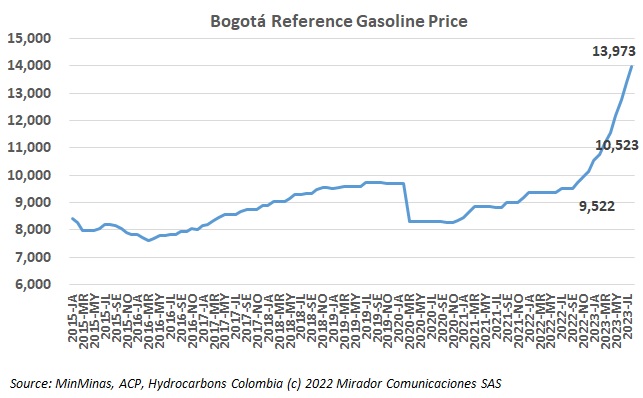
The country eagerly awaits an official announcement on a potential new increase in gasoline prices in Colombia. While the government has yet to confirm a new hike, experts and analysts have been closely monitoring the situation and making projections.
The National Federation of Biofuels (FedeBiocombustibles) has taken a significant step towards promoting sustainable aviation by signing a memorandum of understanding with the International Civil Aviation Organization (ICAO).
Aurelio Ferreira, president of the Ibero-American Propane Association, spoke about the work being done on renewable propane.
Minister of Finance (MinHacienda) Ricardo Bonilla addressed the concerns of truckers regarding the anticipated increase in the price of diesel fuel.
The Colombian Ministries of Finance (MinHacienda) and Minas y Energía (MinEnergia) published a project decree aimed at eliminating stabilization subsidies for major fuel consumers covered by the Fund, including diesel and gasoline.
Fedetranscarga expressed concern and issued a call to the government regarding the potential implications of diesel price hikes.
The Fuel Price Stabilization Fund (FEPC) accumulated a debt equivalent to 2.5% of the Gross Domestic Product (GDP) in 2022. As a result, the government has initiated adjustments to the gasoline price to reduce the size of the subsidy provided.
In a recent press conference, Minister of Finance, Ricardo Bonilla, announced that the price of diesel fuel will not be adjusted during the ongoing election campaign until gasoline prices have been stabilized.
We used to joke about the Colombian government’s “Magic Formula” which it supposedly used to set gasoline and diesel prices. Events of the past few years have proven that, if there ever was a “magic formula”, governments abandoned it in the pandemic. Politicians set prices using political criteria (what a surprise!) and economics or finance play a limited role. Now the Petro government sends signals that it plans a radical restructuring of fuel pricing and we think it shows it / his thinking about the broader energy sector.
The Colombian government has revised its estimate for the maximum price of gasoline in the country.